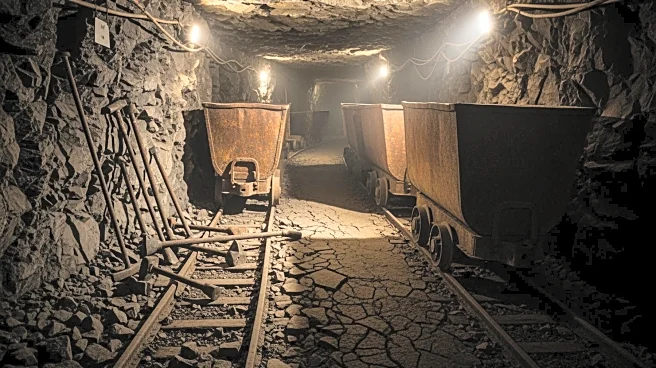What's Happening?
The Federal Reserve's decision to cut interest rates is expected to have a significant positive impact on banks in the Gulf Cooperation Council (GCC) region. Deepak Mehra, Chief Economist at Commercial Bank of Dubai, has outlined the strategic benefits of this move, particularly for Saudi Arabia. The rate cut is anticipated to support businesses in the GCC by reducing borrowing costs, thereby facilitating funding for large-scale projects. Saudi Arabia, with its substantial funding requirements for mega projects, stands to benefit considerably from the lower interest rates, which could enhance its economic growth and development initiatives.
Why It's Important?
The Federal Reserve's rate cut is crucial for the GCC region as it aligns with the economic strategies of countries like Saudi Arabia, which are investing heavily in infrastructure and development projects. Lower interest rates can stimulate economic activity by making borrowing more affordable for businesses and governments. This move could lead to increased investment in the region, fostering economic growth and potentially creating new job opportunities. The strategic advantage for Saudi Arabia is particularly noteworthy, as it seeks to diversify its economy away from oil dependency and invest in various sectors, including tourism and technology.
What's Next?
The GCC countries, especially Saudi Arabia, may continue to leverage the favorable borrowing conditions to accelerate their development plans. This could involve increased investment in infrastructure, technology, and other sectors critical to economic diversification. Stakeholders in the region, including banks and businesses, are likely to monitor the effects of the rate cut closely and adjust their strategies to maximize the benefits. Additionally, the Federal Reserve's future monetary policy decisions will be watched closely, as they could further influence economic conditions in the GCC.
Beyond the Headlines
The rate cut by the Federal Reserve may also have broader implications for global financial markets, potentially affecting currency exchange rates and international investment flows. The GCC's strategic use of lower interest rates could serve as a model for other regions seeking to stimulate economic growth through monetary policy adjustments. Furthermore, the focus on mega projects in Saudi Arabia highlights the country's commitment to long-term economic transformation, which could have cultural and social impacts as new industries and job opportunities emerge.








